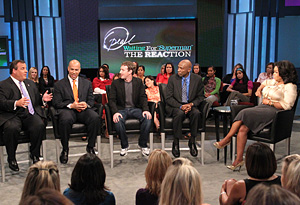
Ira Shor
Critical Thinking is Key:
Empowering Education, by Ira Shor was a complete culmination of ideas, solutions and theories from our previous readings which focused on problems and issues in society and education. Shor discusses in what ways “education is politics” and argues that education is too focused on having students memorize facts and accepting answers to questions that are simply being retold to them. “It is a one way transmission of rules and knowledge from teachers to students, stifling their curiosity.”(p. 12) This cuts off the student’s development as critical thinkers about their world. Shor also discusses the many ways in which education serves to link students to the political world, to its values, and to its prevalent discourse.
Shor defines “empowering education” as a critical-democratic pedagogy for self and social change which is a student-centered program for multicultural democracy in school and society.(p. 15) The teacher has to orient subject matter to student culture – their interests, needs, speech, and perceptions which has an openness where they can input jointly creating the learning process. (p.16) He feels that just instilling facts and skills in students is not enough. He also argues that to be critical in a democratic curriculum means to examine all subjects and the learning process in a systematic depth. Teachers need to connect students individuality to larger social/historical issues; encourage them to see how their experiences relate to academic knowledge, power, and inequality in society, and approach received wisdom and the “status quo” with QUESTIONS!!!(p.17)
In order to have an empowered pedagogy Shor proposes this following agenda of values that must be incorporated in the classroom, and instilled within students.
Participatory, Affective, Problem-posing, Situated, Multicultural, Dialogic, Desocializing, Democratic, Researching, Interdisciplinary, and Activist.
I enjoyed the examples and appreciated the detail that Shor gave for each of these values. I really connected with the participatory value and how he explains how young children are motivated learners, active participants, and learn through play. Teaching kindergarten gives me in-depth understanding of how that process works and it is truly amazing to be a part of it. I also agree that as students get older this type of learning decreases or is null in the classroom. Feelings, dialogue, asking “why”, using personal situations to make connections, encouraging democracy and supporting and giving a voice to differences all resignate with my students and I on a daily basis. I think Zeke would also agree. Shor has proposed what I feel is a fabulous outline of values that also connect to views of other authors such as Finn, Delpit, August, and Kozol. These connections would not have been made or understood as well if this article was read early-on in the class.
This quote I feel sums up what the current status of teaching should transform into especially in the upper grades: "Empowering pedagogy develops classroom discourse from the students' cultural diversity...When problem posing situates itself in the language and perceptions of students, their diverse cultures are built into the study. When students see their worlds and experiences as problems posed... the power relations of study are allied to their interests. It becomes easier for them to understand the meaning and purpose of intellectual work. Studying is no longer submitting to a dull imposition of alien culture."(p. 44)
I will be sharing these articles with my colleagues beyond the aspect of the final project. Shor’s values offer a solution to the “status quo” and if implemented within the curriculum maybe EVERYONE will have a chance to get an “empowering education”.
QUOTES:
"Empowered students make meaning and act from reflection, instead of memorizing facts and values handed to them"
This quote means that a student will be considered “empowered” when he/she has actively participated in learning, reflected upon it and creates their own meaning for that knowledge or information within the world around him/her.
Dewey believes, "participation is an educational and political means for students to gain knowledge and to develop as citizens. Only by active learning could students develop scientific method and democratic habits rather than becoming passive pupils waiting to be told what things mean and what to do."
Students have to participate actively, asking questions, seeking answers, and creating meaning that connects personally to them and within the society as a whole in order to become an interactive and important part of society. You can’t be passive and accept things for what others tell you. You must explore and challenge ideas to create personal meaning. He believed that learning and the government were related and if you learned in a participatory manner then you would develop as a citizen and learn democratic habits in a more proficient way.
Students have to participate actively, asking questions, seeking answers, and creating meaning that connects personally to them and within the society as a whole in order to become an interactive and important part of society. You can’t be passive and accept things for what others tell you. You must explore and challenge ideas to create personal meaning. He believed that learning and the government were related and if you learned in a participatory manner then you would develop as a citizen and learn democratic habits in a more proficient way.
”If the students' task is to memorize rules and existing knowledge, without questioning the subject matter or the learning process, their potential for critical thought and action will be restricted know”
If students don’t challenge or ask questions about subject matter and they simply memorize what they are being told and take it for the truth they will not be able to stretch their schemas of the world and society around them. They will not be able to connect personally and create their own viewpoints and theories surrounding that subject matter. Their understanding will be restricted and that will lead to staying in the “status quo”. They must use critical thinking skills which will unlock understanding and knowledge giving there learning more “meaning”.





